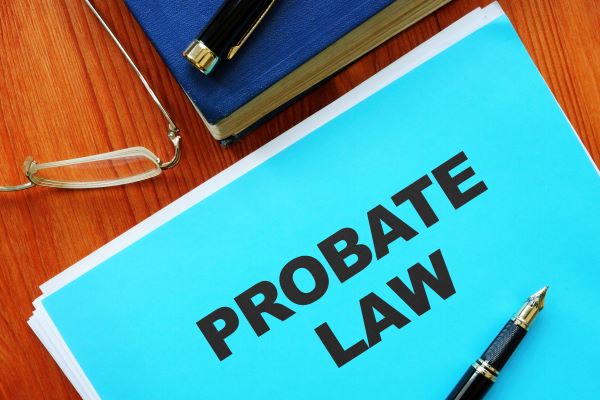Wealth transfer can be protected from excessive taxation by applying tax avoidance principles. Still, it…

What to Expect During the Probate Process Without a Will
When your loved one dies without a will, known as intestate, what happens? According to your state’s intestacy laws, a probate court will oversee the distribution process of the decedent’s property. Also known as intestate succession, it has similarities to the probate process when a will is present. Still, the terms are not interchangeable—any adult who dies intestate triggers a somewhat different process than a will going through probate.
Do You Have a Will?
Many Americans will face the challenges of their loved one dying without a will. According to Think Advisor, a recent survey finds that 59 percent of men and 72 percent of women do not have a will or estate plan. In another survey, CNBC finds a mere 33 percent of Americans have properly established estate plans. Many individuals feel they do not own enough to necessitate writing a will or negatively perceive estate planning as too complex and expensive. They leave their grieving loved ones to accept the court’s decisions regarding their loved one’s inheritable assets and possessions.
Resolving the Estate
The probate court judge’s primary duty is to oversee the lawful resolution of the decedent’s financial affairs. They will follow state law to select a personal representative as the estate administrator. There is technically no executor as no will was left to execute, yet the estate still must be legally resolved. A loved one can begin the intestacy process by going to the decedent’s county probate court, filing a death certificate, and petitioning to begin probate. They will typically nominate themselves as the administrator, but the probate court judge has the authority to name the estate administrator.
Assets Falling Outside of Probate and the Role of Administrator
Like dying with a will, dying intestate does not affect jointly held accounts and those assets with a designated beneficiary or payable-upon-death status. These may include money market, savings and checking accounts, IRAs, retirement accounts, certificates of deposit (CD), life insurance, and annuity policies. The estate administrator, as appointed by the probate court judge, will perform the functions as required by state law, including:
- Identify and give notice to estate beneficiaries and other interested parties
- Give notice to creditors
- Give notice to all government agencies from which the decedent received benefits
- Pay debts and fees, including state and federal taxes
- Inventory assets
- Distribute assets
- Close the estate
Under the law, family members may inherit the remaining assets after payment of the estate’s final debts through the estate administration process. The handlers of the administration process may be one person, two or more individuals, a bank, or a law firm. In cases of estates under a certain dollar amount, the administrator may petition the probate court for a simplified version of the probate proceeding.
Standard Probate Proceedings
Though some of the filings and processes are different than probate with a will, the probate court is still actively involved if your loved one dies intestate. The probate court processes may:
Resolve or prevent conflicts – A probate court judge will decide how to answer any legal questions that may arise related to state law. When someone dies without a will, family members often claim certain assets or possessions of the decedent, citing a verbal promise. The estate administrator can avoid becoming the lightning rod of controversy for decision-making since the probate judge makes the final decision. Although this is no guarantee heirs won’t fight things out in court, in most cases, intestate succession laws prevent these disputes.
Legally Transfer Title – Real property like a house, car, truck, or boat, without joint tenancy with right of survivorship or held in trust, requires the probate court to transfer the name on the title. In cases of real estate owned by a couple or shared personal property in a community property state, titles may transfer automatically to the surviving spouse.
Cut off claims by creditors – Once the probate court process starts, creditors have a certain amount of time to bring a claim against the estate. Estate administration can reduce this timeframe in some states to as little as three months so that a creditor can’t approach a family member looking for money months or even a year into the future.
Take money from accounts – If the decedent’s financial accounts are not jointly held or do not have named beneficiaries, or payable-on-death status, a family can’t access the funds in the accounts without the probate process and approval.
Probate Laws Vary by State
In cases of dying intestate, the probate process is similar among all states, but state laws still vary. If you are administering an estate without a will, an estate planning attorney or probate lawyer can help you understand the differences in the probate process. Getting professional legal advice can be well worth the money spent to distribute the decedent’s assets according to state law and properly close the estate.
We hope you found this article helpful. If you’d like to discuss your legal matters, please don’t hesitate to contact our Guntersville office at 256-486-3407. We look forward to the opportunity to work with you.



